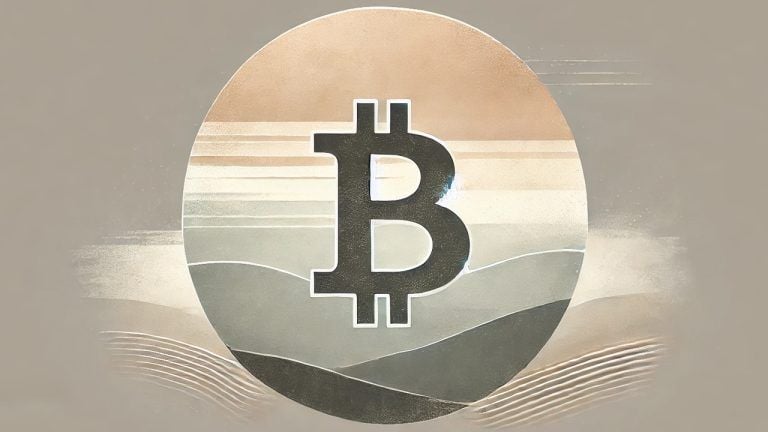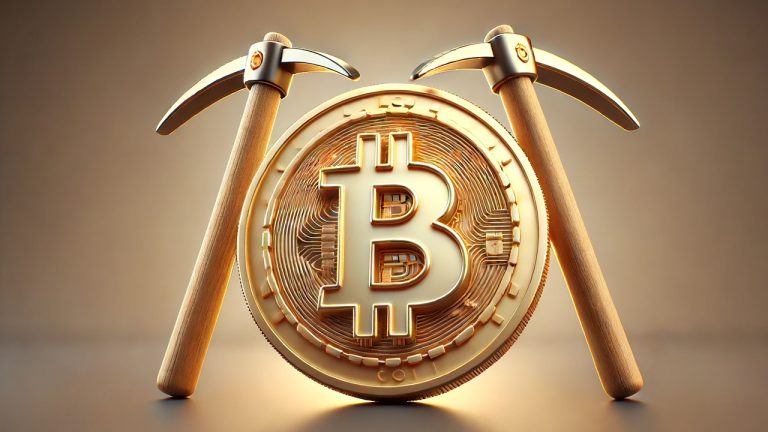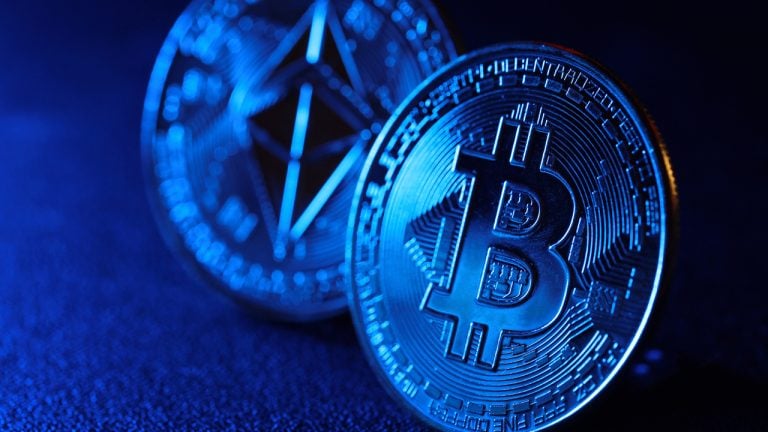 Bitcoin prices may have reached a local low, as suggested by researchers at cryptoquant.com. The firm’s recent institutional insights report says large sellers appear to have depleted their selling power, and key valuation metrics point to potential positive price movement. Report Notes Seller Exhaustion in Bitcoin Markets, Despite Low Stablecoin Liquidity In the past week, […]
Bitcoin prices may have reached a local low, as suggested by researchers at cryptoquant.com. The firm’s recent institutional insights report says large sellers appear to have depleted their selling power, and key valuation metrics point to potential positive price movement. Report Notes Seller Exhaustion in Bitcoin Markets, Despite Low Stablecoin Liquidity In the past week, […] U.S. spot bitcoin exchange-traded funds witnessed a second day of inflows as they captured $21.52 million on Thursday. The leader in terms of gains was Fidelity’s FBTC led the pack with a $19 million increase. Modest Inflows for Bitcoin ETFs on Thursday With Fidelity’s FBTC Leading the Pack The 11 spot bitcoin ETFs had a […]
U.S. spot bitcoin exchange-traded funds witnessed a second day of inflows as they captured $21.52 million on Thursday. The leader in terms of gains was Fidelity’s FBTC led the pack with a $19 million increase. Modest Inflows for Bitcoin ETFs on Thursday With Fidelity’s FBTC Leading the Pack The 11 spot bitcoin ETFs had a […] In the realm of bitcoin trading, technical analysis can play a significant role, with oscillators being pivotal tools. Oscillators, developed over decades, assist traders in making informed decisions by analyzing price momentum and market conditions. This article delves into the history and usage of key oscillators leveraged in bitcoin trading. Oscillators and Why They Matter […]
In the realm of bitcoin trading, technical analysis can play a significant role, with oscillators being pivotal tools. Oscillators, developed over decades, assist traders in making informed decisions by analyzing price momentum and market conditions. This article delves into the history and usage of key oscillators leveraged in bitcoin trading. Oscillators and Why They Matter […] In the last three days, bitcoin miners have experienced an 8.4% drop in profits, echoing a decrease in bitcoin prices. Since then, the network’s hashrate has fallen below the 600 exahash per second (EH/s) mark. Price Drop Squeezes Bitcoin Mining Profits Revenue for bitcoin miners has declined as the hashprice, the revenue from 1 petahash […]
In the last three days, bitcoin miners have experienced an 8.4% drop in profits, echoing a decrease in bitcoin prices. Since then, the network’s hashrate has fallen below the 600 exahash per second (EH/s) mark. Price Drop Squeezes Bitcoin Mining Profits Revenue for bitcoin miners has declined as the hashprice, the revenue from 1 petahash […]
Despite most of the cryptocurrency market being down 60% from all time highs, Demissie said the digital asset industry is “here to stay.”
Michael Demissie, the head of digital assets at Bank of New York Mellon (BNY Mellon) is adamant that the cryptocurrency market fall in 2022 won’t waver institutional interest in digital assets.
At a conference run by Afore Consulting on Feb. 8, Demissie said the digital asset industry is “here to stay” as institutional investors have held a strong interest in crypto.
"What we see is clients are absolutely interested in digital assets, broadly,” he said, according to a Feb. 8 report from Reuters.
Demissie backed up his thoughts by referencing a survey conducted by BNY Mellon in October, 2022, which found that 91% of custodian bank clients are interested in investing in blockchain-based tokenized products.
The survey also found that 86% of institutional players are adopting a “buy and hold” strategy, which may suggest that they see the cryptocurrency market as a long-term play.
88% of those surveyed also said the severe cryptocurrency market turndown in 2022 hasn’t changed their plans to invest in the digital asset sector over the long term.
Adoption rates of cryptocurrencies and digital assets are still growing, despite the recent crypto winter, Fireblock’s Michael Shaulov, tells Aerial View. Visit https://t.co/vELI6pZUDy #aerialviewbites #cutthroughthecorporate #sibos #aerialview #digitalassets @bnymellonAV pic.twitter.com/Po4bgEpJn9
— BNY Mellon (@BNYMellon) October 28, 2022
Demissie did however state that more work needed to be done in Washington D.C. so that industry players can move forward with more regulatory clarity.
"We absolutely need clear regulation and rules for the road. We need responsible actors who can offer reliable services that live up to investors trust."
"It's important that we navigate this space in a responsible way," he added.
On Feb. 2, BNY Mellon announced the appointment of Caroline Butler as the firm’s CEO of Digital Assets to help drive the next wave of adoption for the bank’s clients.
Butler was previously the CEO of custody services.
As the Digital Assets CEO, Caroline Butler will lead global efforts to accelerate @BNYMellon's commercial digital assets initiatives. https://t.co/tYbuJzrAZt pic.twitter.com/OacBbHO1xZ
— BNY Mellon (@BNYMellon) February 2, 2023
The appointment comes as BNY Mellon launched its own digital custody platform in October, 2022, offering selected institutional clients the opportunity to invest in Bitcoin (BTC) and Ether (ETH).
Earlier in February, 2022, BNY Mellon announced a partnership with on-chain metrics platform Chainalysis to help track and analyze cryptocurrency products.
Related: Clear regulations will accelerate crypto adoption, says SEBA Bank exec
BNY Mellon isn’t the only big bank making moves in the digital asset industry of late.
Goldman Sach was reportedly expressed interest in buying cryptocurrency firms after several were impacted by FTX’s catastrophic collapse in November.
While JPMorgan CEO Jamie Dimon isn’t a fan of Bitcoin, his firm has dabbled with blockchain-based services in recent times. In November, the firm successfully executed its first-ever cross-border transaction using decentralized finance (DeFi) on a public blockchain.
 Ethereum remained close to a three week high on Monday, as prices rallied following a turbulent weekend. Bullish sentiment appears to have somewhat returned to crypto markets to start the week, with the market cap trading 1.56% high as of writing. Bitcoin was also in the green in today’s session. Bitcoin Bitcoin (BTC) was trading […]
Ethereum remained close to a three week high on Monday, as prices rallied following a turbulent weekend. Bullish sentiment appears to have somewhat returned to crypto markets to start the week, with the market cap trading 1.56% high as of writing. Bitcoin was also in the green in today’s session. Bitcoin Bitcoin (BTC) was trading […] Cryptocurrency exchange Binance has set out to support crypto miners through a lending program established by its mining pool. Presenting the initiative this week, the coin trading platform also unveiled that Binance Pool intends to launch cloud mining products. Leading Exchange Binance Looking to Help Bitcoin Miners in Difficult Times for Crypto Business Binance, the […]
Cryptocurrency exchange Binance has set out to support crypto miners through a lending program established by its mining pool. Presenting the initiative this week, the coin trading platform also unveiled that Binance Pool intends to launch cloud mining products. Leading Exchange Binance Looking to Help Bitcoin Miners in Difficult Times for Crypto Business Binance, the […]
El Salvador’s finance minister believes the ongoing price volatility of Bitcoin means the awaited “Bitcoin bond” won't be launched anytime soon. Meanwhile the country faces a “human rights crisis.”
El Salvador’s finance minister Alejandro Zelaya has said the country will further delay launching its anticipated billion dollar Bitcoin (BTC) bond citing price volatility and uncertain market conditions resulting from the ongoing Russo-Ukrainian war.
The news comes at the same time that Amnesty International accused the Salvadoran authorities of “flagrant violations of human rights and criminalizing people living in poverty.”
In a June 1 interview on the local “Frente a Frente” (Face-to-Face) news program Zelaya was asked if the situation with the $1 billion Bitcoin bond issuance from a “few months ago” had changed.
“No, not yet, the [Bitcoin] price continues to be disrupted by the war in Ukraine,” he said according to a rough translation. He added that “in the short term the variations are constant but in the long term it always tends to appreciate in value.”
“There is a future and there is an economic innovation [in Bitcoin] that we must bet on.”
The plan for the bond was originally announced in November 2021 by El Salvador’s president Nayib Bukele. Half of the $1 billion expected is to fund construction of a “Bitcoin City” built near a volcano with the idea that its geothermal energy could be harnessed for Bitcoin miners. The other half of the funds raised would be invested into Bitcoin.
The $1 billion bond was originally scheduled to launch in mid-March 2022 but in an interview in March Zelaya delayed the launch citing price volatility, giving a possible launch date around June with a timeline extending until September 2022.
Mounting fears that the country could default on an $800 million bond due in January 2023 caused rating agency Moody’s to downgrade El Salvador’s credit rating on May 4 citing “lack of a credible financing plan.”
El Salvador's government has been buying Bitcoin since September 2021 with Bukele announcing the country purchased a further 500 BTC on May 9, El Salvador is estimated to have lost more than $35.6 million from its BTC investments so far.
Meanwhile, human rights advocacy non-profit Amnesty International accused El Salvador’s government of committing “massive human rights violations” through arbitrary arrests, ill-treatment and torture of prisoners.
A state of emergency (SOE) was declared by President Bukele on March 27 due to a rising homicide rate which the government blamed on gangs and organized crime. The SOE has since been extended twice.
The human rights group said the SOE changed laws and legal procedures which undermine the rights to defense, the presumption of innocence, effective judicial remedy and access to an independent judge.
Related: El Salvador’s Bitcoin play: What does the current slump mean for adoption?
During the crackdown more than 35,000 people have been imprisoned in less than three months with the increase in arrests causing 1.7% of the country’s population over 18 years old to be in detention, resulting in overcrowding of over 250% of the prison capacity.
0 homicidios.#Seguimos https://t.co/Dzcs18bjpA
— Nayib Bukele (@nayibbukele) June 2, 2022
But despite the abuses, many El Salvadorians agree with Bukele’s harsh measures as the President remains popular in opinion polls. The most recent poll released by local media on June 1st show a nearly 87% approval rate for the current president.